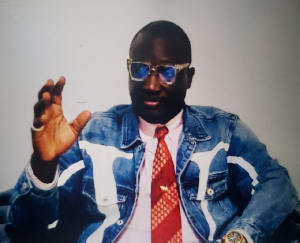 Nana Kweku Ofori Atta is a security analyst
Nana Kweku Ofori Atta is a security analyst
In light of current developments in Ghana's Parliament, it is essential to recognize the unique nature of the legislative body, which is composed of both the majority and minority groups.
However, with four parliamentary seats currently vacant, the balance of power is affected. This raises significant questions about the role of independent candidates within Parliament and their influence in the decision-making process.
Independent candidates hold a unique position in Parliament as they do not officially align with either the majority or minority groups. The question arises as to how they will be seated or where they belong within the legislative structure.
Typically, independent candidates, while not affiliated with a political party, may choose to caucus with either side for strategic reasons, or they could remain unaffiliated, voting on issues based on individual convictions.
In a scenario where the number of independent candidates surpasses that of the incumbent government, the dynamics of parliamentary operations could shift dramatically. Independent members could play the role of kingmakers, holding significant sway over which policies are passed, depending on how they cast their votes. In such a situation, their stance on national issues would determine their influence on legislative outcomes.
This unique position of independent candidates, combined with vacant parliamentary seats, could lead to a recalibration of power and voting strategies within the Parliament.
The question of how independent members are integrated into the parliamentary framework and how they are positioned to exercise their influence, especially in close contests, is crucial for understanding the evolving landscape of Ghana's legislative process.